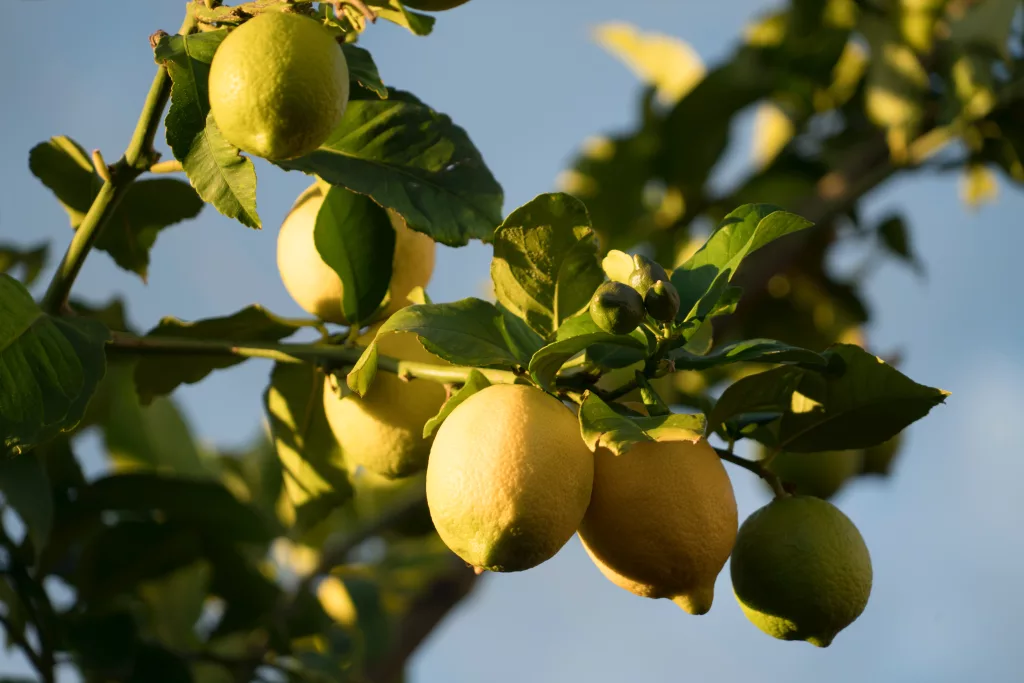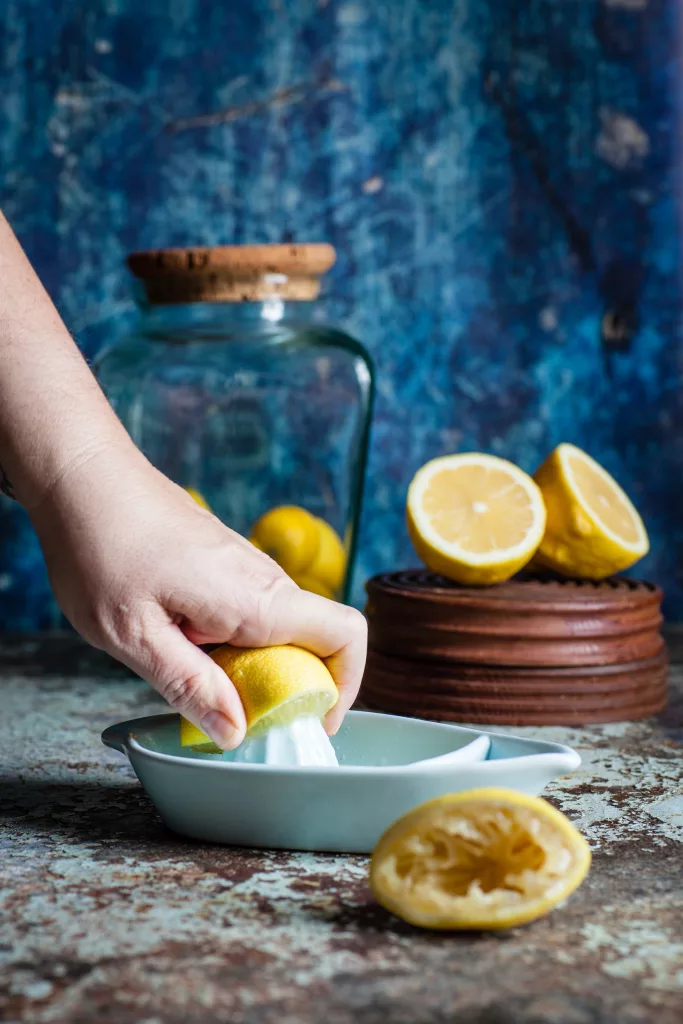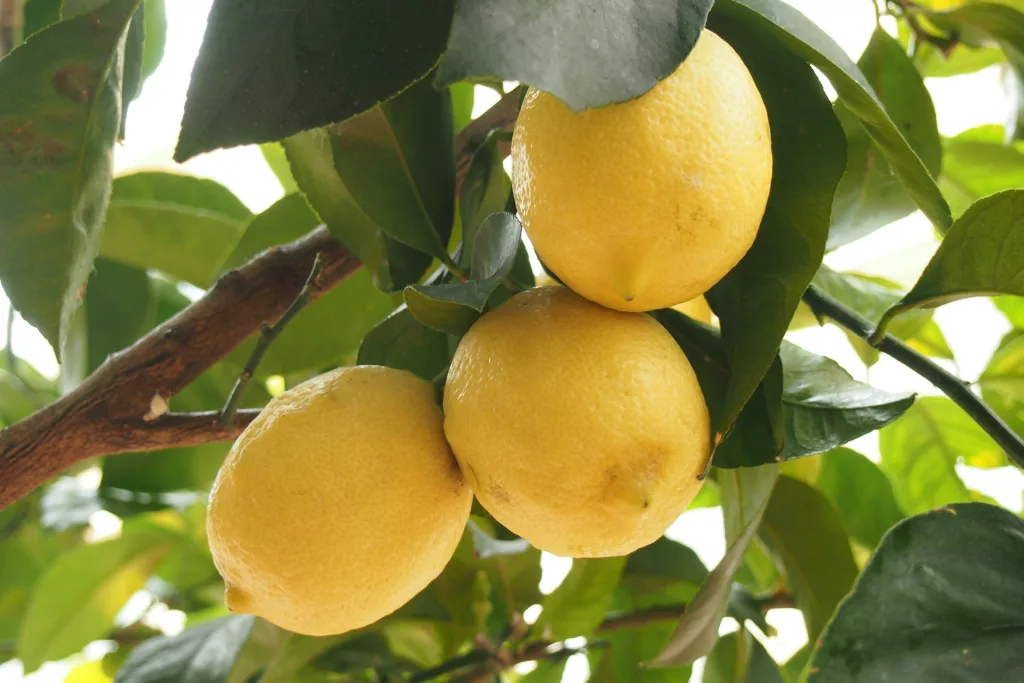Lemon (Citrus limon) is perhaps the most well-known and widely consumed citrus fruit worldwide. They are a cross between the citron and lime and can be found growing on lemon trees. Lemons are an excellent source of vitamin C and fiber, and they also contain a variety of other bioactive components, minerals, and essential oils.
This bright yellow fruit is a must-have for any cook. Lemons can be used in both sweet and savory dishes, such as the delicious lemon cheesecake and the spicy lemon chicken wings. Plus, it’s not limited to the kitchen! Lemons have many different uses, including in medicine, cleaning, and even hair coloring. There’s no limit to lemon. This sour citrus once signified the social status of wealth and royalty. Now, we will reveal the truth about lemon.
Let’s uncover the truth about lemon

Lemons inhibit the spread of bacteria.
Exposure to lemon juice has been shown to kill a variety of dangerous pathogens, including typhoid, cholera, malaria, and diphtheria. Lemon juice’s acidity and other components are great for killing bacteria, and it also has the added benefit of giving your kitchen counters a pleasant aroma. Who doesn’t love the energizing effects of a good scrubbing?
It’s true that lemons are delicious, but they have other, more practical uses as well.
- Get rid of any unpleasant odors. Is your cutting board smelling like garlic because of all the chopping you’ve done on it? Remove any lingering odor by rubbing half a lemon over it.
- Wipe the dirt off the windows. Putting in some lemon juice will help you see through it again.
- Scrub away the stains. Was that a red wine spill? To remove it, mix equal parts lemon juice, salt, and baking soda into a paste.
- Make sure your dishes are spotless when you’re done. Put half a lemon into the dishwasher the next time you run it to ensure a spotless rinse.
- Shine up the metal. Use a half lemon dipped in salt to polish chrome appliances and fixtures.
The tea made from lemon tree leaves is delicious.
Lemon tree tea is surprisingly tasty, and you can make it with the leaves. It has a tangy flavor that comes from the lemons, and it is loaded with antioxidants that are beneficial to your health.

Vitamin C is found primarily in the rind
It’s hard to believe, but lemons come in second place to oranges among citrus fruits when it comes to vitamin C content. Lemon juice is high in vitamin C, but the rind is where the majority of the vitamin content lies. The vitamin C content of lemon peel is extremely high, at 129 milligrams per 100 grams.
Electricity can be generated from lemons
No, it’s not the metals themselves that cause the reaction; rather, it’s the electrolytes (which conduct electricity) that bring about the reaction. In addition to a lemon, a galvanized nail and a copper penny are all that are required to conduct the classic science fair experiment of creating an electro-chemical battery using a lemon. Create a lemon battery by placing the nail in one end of the lemon and the penny in the other end (without letting them touch inside the lemon).
The lemon tree produces an astonishingly large number of fruits
We’ve done the math, and while it may be hard to wrap your head around, we have a solution. In a commercial orchard, a large lemon tree can yield between 226.2 and 371.9 kilograms of lemons per year. A single lemon tree can produce this many lemons in a year. Totally insane, right?
Lemon gives you more energy
Lemons are the only fruit that can be considered “anionic.” Did you know that? The majority of foods and fruits are “cationic,” or positively charged, but lemons are negatively charged. This means that consuming them can give you an energy boost because of the energy produced by the interactions of anions and cations in your cells.

Lemon trees live for a very long time
A healthy lemon tree, protected from pesticides for its entire life, can live for up to 50 years with proper care. However, with proper care, they have a 100-year lifespan. We estimated that a single lemon tree could produce over 270,000 lemons during its lifetime.
Fruits that have been treated with lemon juice are less likely to spoil
A few drops of lemon juice can keep a variety of fruits from turning brown and moldy. Buying more fruit than you can eat at once? Rub the fruits with some lemon juice before putting them away. In addition, you can cut up your lemons and store the slices in the freezer for later use.
As time passes, lemon trees change color
The leaves of a lemon tree are a bright red when they are first emerging from the tree. After a while, they turn lush green and begin yielding high-quality lemons.
Many people’s diets wouldn’t be complete without lemons. Lemons and lemon trees are a wonderful addition to any garden because of their many uses and low maintenance requirements. Some people may also have allergic reactions to them. Because of the acidity of lemons, eating them on a regular basis could be bad for your teeth.
Check out the video below for more amazing health benefits of lemon:
You can also visit our Facebook and YouTube pages for more plants with their health benefits.









3 thoughts on “The Truth About Lemon Revealed | Benefits of Lemon”